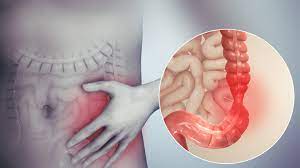
Doctors warn that a combination of insufficient physical activity and a rise in the consumption of unhealthy food is leading to an increase in diabetes among young Indians. A recent study conducted by the Indian Council of Medical Research-INdia DIABetes (ICMR-INDIAB) revealed that one-tenth of the Indian population has diabetes. Currently, there are 101 million diabetics and 136 million pre-diabetic individuals in the country.
This concerning trend presents significant long-term health challenges, affecting various bodily functions such as the cardiovascular system and kidneys.
Dr. Mohit Sharma, Senior Consultant in Internal Medicine at the Department of Endocrinology, Amrita Hospital, Faridabad, emphasized the importance of early detection and management of Type 2 diabetes, particularly in young individuals. Recognizable signs include frequent urination, increased thirst, excessive hunger, unexplained weight loss, chronic fatigue, blurred vision, slow wound healing, and recurring infections. Dr. Sharma stressed the need for regular monitoring, as these symptoms may often go unnoticed.
Dr. Tushar Tayal, Lead Consultant at the Department of Internal Medicine, CK Birla Hospital, Gurugram, pointed out that the number of people affected by diabetes is steadily rising, with a noticeable shift towards a younger demographic. He attributed this increase to lifestyle factors such as lack of exercise, consumption of junk food, and a diet high in refined flour, refined sugar, and trans fat.
Type 2 diabetes also has a significant impact on the cardiovascular system, elevating the risk of heart-related issues such as heart attacks, angina, sudden cardiac death, heart failure, strokes, and peripheral arterial disease. Additionally, it can adversely affect kidney function.
Certain groups, such as younger individuals (especially women with a history of gestational diabetes and early puberty), ethnic and racial minorities, those from lower socioeconomic backgrounds, and those exposed to urban environments, face higher susceptibility rates.
Health experts strongly recommend adopting a disciplined lifestyle to mitigate risk factors. This includes engaging in 150 minutes of exercise per week or 30 minutes of vigorous cardiovascular activity daily, such as cycling, jogging, running, swimming, or brisk walking. They also stress the importance of maintaining a healthy diet, avoiding refined flour, refined sugar, and trans fats.











